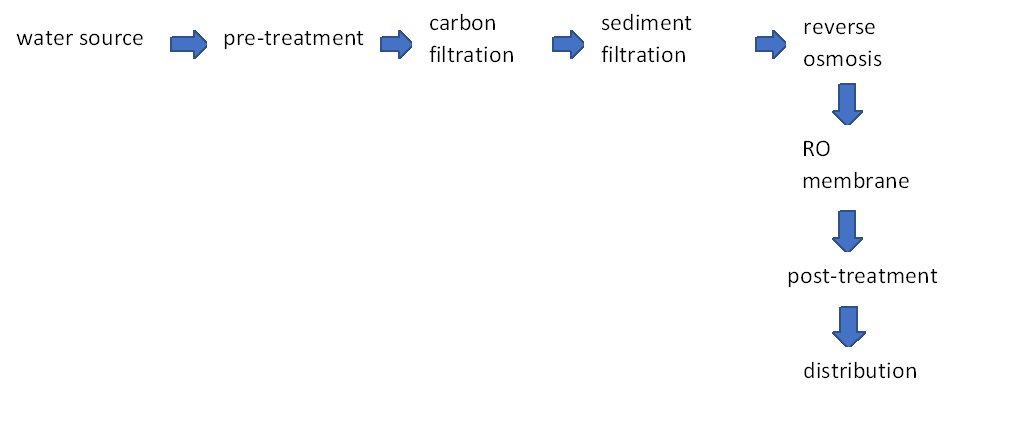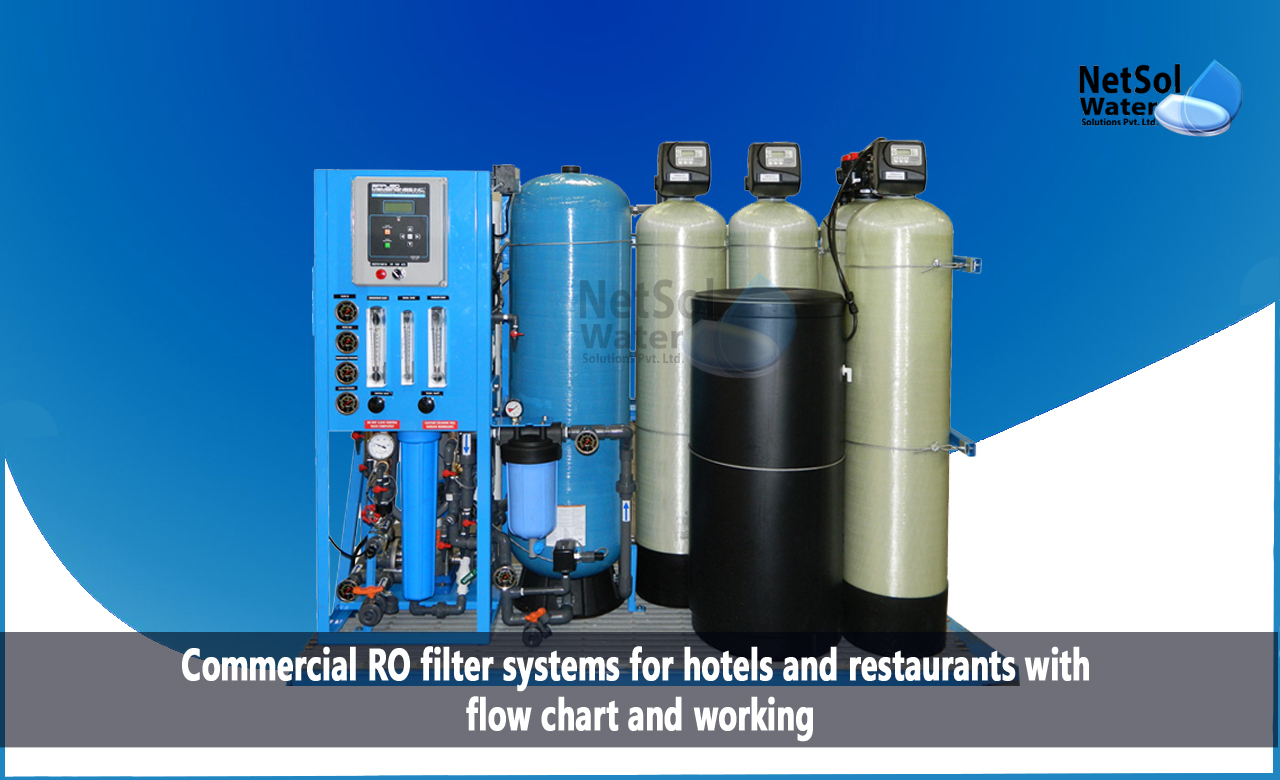Commercial RO filter systems for hotels and restaurants
Commercial RO (Reverse Osmosis) filters are water filtration systems that use a semipermeable membrane to remove impurities and contaminants from water. They are designed for use in commercial and industrial settings, such as restaurants, hotels, hospitals, universities, and manufacturing facilities, where large quantities of purified water are required.
Need of RO in hotels and restaurants:
Commercial RO (Reverse Osmosis) filter systems are essential in hotels and restaurants for several reasons, including:
1. Providing Safe and Clean Drinking Water: The primary reason for using commercial RO filters in hotels and restaurants is to provide safe and clean drinking water to guests and customers. RO filters remove impurities, contaminants, and dissolved solids from the water, making it safe for consumption.
2. Enhancing Taste and Quality of Water: The use of commercial RO filters improves the taste and quality of the water by removing impurities, such as chlorine, odors, and organic matter, which can affect the taste and odor of the water.
3. Cost Reduction: The use of commercial RO filters can help reduce the cost of buying bottled water and other beverages. Instead, hotels and restaurants can provide purified water to their guests and customers, reducing the need to purchase bottled water and other beverages.
4. Environmental Protection: The use of commercial RO filters can help reduce the environmental impact of plastic water bottles, which can contribute to plastic pollution.
5. Compliance with Regulations: Hotels and restaurants must comply with various regulations related to water quality and safety. The use of commercial RO filters helps to ensure that the water meets the required quality standards and regulatory requirements.
6. Maintaining Equipment: The use of commercial RO filters can help maintain equipment such as coffee makers, ice machines, and other appliances that require clean and safe water for their operation.
Working of commercial RO filter systems for hotels and restaurants:
Commercial RO (Reverse Osmosis) filter systems are widely used in hotels and restaurants to provide clean and safe drinking water to guests and customers. Here is a flowchart that outlines the working of commercial RO filter systems in hotels and restaurants:

1. Water Source: The first step is to identify the water source, which can be from various sources such as municipal water supply, well water, or other sources.
2. Pre-Treatment: The water undergoes pre-treatment to remove large particles, debris, and organic matter. This can be achieved through various methods such as sedimentation, filtration, and coagulation-flocculation.
3. Carbon Filtration: The pre-treated water then undergoes carbon filtration, which removes chlorine, odors, and organic matter from the water, improving its taste and odor.
4. Sediment Filtration: The water then undergoes sediment filtration, which removes any remaining sediment, rust, or sand particles from the water.
5. Reverse Osmosis: The filtered water then enters the commercial RO filter system. The RO filter system consists of several components, including the sediment filter, activated carbon filter, RO membrane, pressure vessel, pumps, and control panel.
6. RO Membrane: The water is forced through the RO membrane, which acts as a barrier, allowing only pure water molecules to pass through. The impurities and contaminants are left behind and are discharged as reject water.
7. Post-Treatment: The purified water then undergoes post-treatment, which involves the addition of minerals to improve the quality of the water and balance its pH.
8. Storage: The purified water is then stored in a tank, which is typically made of stainless steel, to maintain its purity and prevent contamination.
9. Distribution: The purified water is distributed to various points of use within the hotel or restaurant, such as water dispensers, ice makers, and coffee machines.
10. Quality Control: The purified water is subject to regular quality control testing, which involves various parameters such as pH, total dissolved solids, and bacterial count, to ensure that it meets the required quality standards.
11. Maintenance: Regular maintenance of the RO filter system is essential to ensure that it operates at peak efficiency and maintains the required quality standards.
Conclusion:
In conclusion, the use of commercial RO filter systems in hotels and restaurants is critical to provide clean and safe drinking water to guests and customers. The above flowchart outlines the various steps involved in the working of commercial RO filter systems in hotels and restaurants.
Do you need an advice or assistance on selecting the best water and waste water treatment unit? We have solutions for all your problems!
Let us now your problem, our experts will make sure that it goes away.
For an assistance or related query,
Call on +91-965-060-8473
Or write us at enquiry@netsolwater.com



